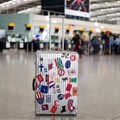Responsible tourism has taken on an entirely new emphasis as South African travellers turn their attention to the most effective ways to enable their own economy to recover from the fallout of the global Covid-19 pandemic. A shift among travellers to first think local is now paramount.
While the Tourism Business Council of South Africa (TBCSA) strongly lobbies for a phased reopening to international tourists from as early as September 2020, local operators would be well advised to follow the lead of many other countries abroad who are - first and foremost - looking to their own local markets to help set the sector on the road to recovery.
What’s clear is that it will take time, not only for international borders to reopen across the globe, but also for confidence in the market to return. The job now is to encourage and convince our fellow South Africans, especially those who routinely travel abroad, to instead spend their tourist rands at home.
As things stand, local travellers find themselves about to enter what will be an ideal window period if they, and operators, embrace it correctly.
A collective approach
On the one hand are the seasoned travellers, who should consider staying within our own borders for now - for their own health and that of others, as well as if they take seriously our collective responsibility to get our own country up and running as soon as possible. On the other, the status quo offers a critical learning opportunity for the industry to cultivate a new market of local travellers. The obvious target seems to be those who may have been left out of the loop previously, with tourism traditionally aimed so heavily at visitors from abroad, and with options often too expensive for local pockets.
However, cultivating either of these markets will depend on two things from the operators: peace of mind in terms of offering the levels of safety now required, and choice of the right products tailored to a local market and offering both value and affordability.
The first of these – particularly for hotels, where social distancing will need to be a 24/7 preoccupation – hygiene standards will need to reassure visitors that every precaution is being taken to ensure their safety while they are guests. This requires expert input, not only to secure compliance in each individual venue but to also ensure that an extended relaxation of lockdown continues to benefit, and indeed reward, a fully compliant tourism industry and the new markets experiencing it.
In terms of our own Radisson Hotel Group venues across South Africa as well as abroad, we recently announced our new 20-step safety protocol (with an additional 10-step protocol for meetings and events), developed in partnership with SGS, a global leader in inspection, verification, testing and certification.
This will see increased cleaning and disinfection of all hotel areas, hand sanitiser stations throughout venues, disinfecting of room keys, express check-out processes to minimise contact, cash-free methods of payment, increase cleaning and disinfecting frequency throughout the hotel, paying attention to high-touch items, comprehensive training of staff, and the supply of relevant Personal Protective Equipment (PPE) to all our team members.
Upscaling sustainable tourism
Choice of product, too, introduces a whole new ball game. It will place a responsibility on operators to not only significantly upscale sustainable tourism as a whole – a factor that has become increasingly important to travellers over the past few years – but to establish the important symbiosis that can exist between different operators.
Travellers can expect to see operators establishing partnerships that will draw together value-added, diverse packages, incorporating vetted venues within close proximity, or promoting the lesser known gems in areas across South Africa. Rural areas, where the pandemic has perhaps been less acute, but where the knock-on of the economic downturn has nevertheless found impact, are important for consideration too.
In terms of the latter, Parliament’s Portfolio Committee on Tourism is now actively seeking ways in which to transform the tourism sector in South Africa, for both tourist and operator. In June, the committee released a statement announcing its "3Rs" philosophy aimed at "rebranding, repositioning and renewal" of tourism, with a particular focus on how to bring transformation in the sector to small towns across the country.
Irrespective of how far travellers will now venture in their own country, however, they will be seeking both value-for-money and enticing experiences as they maintain social distancing. Those operators who can offer the full package will be on the frontline of the recovery effort, both leading the way and the first to ensure their own survival.
As for local tourists themselves, embracing South Africa as their destination of choice will also do something at which we’ve become very good: stimulate a sense of national pride in what we have, and in what we can achieve when we get behind a common goal. That goal, now, is the recovery of our economy.



































